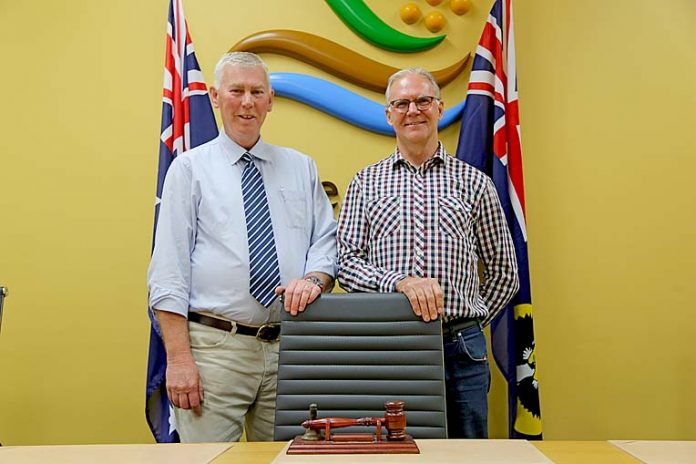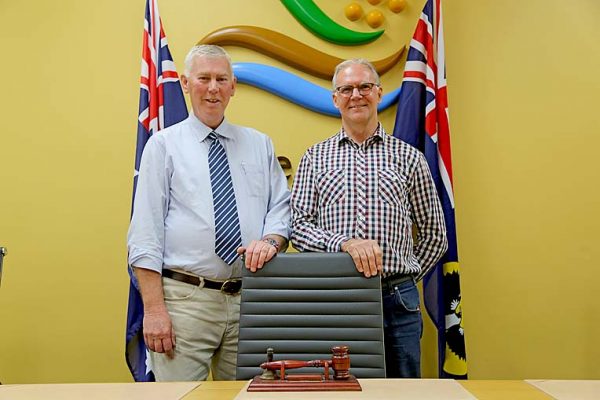

RATE increases, population growth and aged care were among the top priorities at Tuesday evening’s Wattle Range Council candidate debate.
Mayoral candidates Des Noll and Dennis Muhovics faced off in the event hosted by The South Eastern Times, tackling questions on governance, decision-making and rates.
Along with 14 other council hopefuls, the two aspiring mayors told the crowd of issues they believed to be of key importance, including regional policing, health and attracting and retaining younger people to the region.
Mr Muhovics, a long-time local business owner, highlighted supporting existing and new industries was imperative for continued economic growth in Wattle Range.
“We live in a large, diverse council with many industries, including agriculture, horticulture, fishing, forestry and power generation,” he said.
“These businesses are propped up by reliable power systems, engineering and trade services.”
“We are very lucky to have those supportive industries around us and it creates many opportunities to value-add to our industries.”
Mr Muhovics said a decline in population has resulted in a 1pc reduction since 2006, which was also addressed by Mr Noll.
Mr Noll said council needed to explore ways to keep younger people from moving to the city, but acknowledged a greater focus on aged care was necessary to address the aging population.
He said population growth would provide council and the community with a number of benefits, including a potential decrease in rates due to more housing.
“Population growth is extremely important and we need to sustain it and drive it,” he said.
“We need more aged care facilities because that is the future.
“We are an aging population and we have to house these beautiful people.
“Perhaps we should look at new aged facilities to accommodate what the future will bring.”
In response to a question on governance experience, Mr Muhovics, who was elected to council in 2014, said election to local government and the processes involved was a “detailed learning curve”.
He said his experience on council had provided him with a unique insight into governance and necessary legislative requirements.
“I have came in with a bit of knowledge in the fact my wife actually was a councillors and the deputy mayor of Wattle Range Council, so I have had a bit of insight of what was involved.
“We have to understand governance, financing and budgeting.
“They are all necessary applications in understanding where ratepayers money is being spent.”
Mr Noll focused on the need for new representation on council, telling the crowd was “time for change” within the chamber.
The former police officer cited his professional work history as well as his former appointment as Apex national secretary being of major benefit if elected.
“It is time to have a new direction and a new group of people in office, in making new decisions in driving our economy , driving our future and allowing our communities to be self empowered and drive into the future,” he said.
“My experience in governance is reflected in the public sector and experience as a police officer.
“I served on the Apex Australia auditing committee which had a turn over of $6m per annum.
“That also involved board member responsibility and financial accountability.”
Incumbent Kintore Ward Councillors Kevin McGrath and Peter Dunnicliff were also in attendance, with the latter quizzing all candidates on potential council processes.
“If you’re elected to council, sometimes you will come across a motion you need to vote on,” he said.
“Sometimes you will think ‘yes I agree with that’ and then you will think ‘what will the ratepayers think’.
“How would you decide on something you need to vote on when you might think we need it without knowing what the public needs?”
Mr Noll said it was the mayor’s responsibility to ensure any council decision was made with the community’s interests at heart.
Mr Muhovics said elected members were briefed ahead of monthly meetings and often discussed issues with council’s executive team, councillors and the community.







